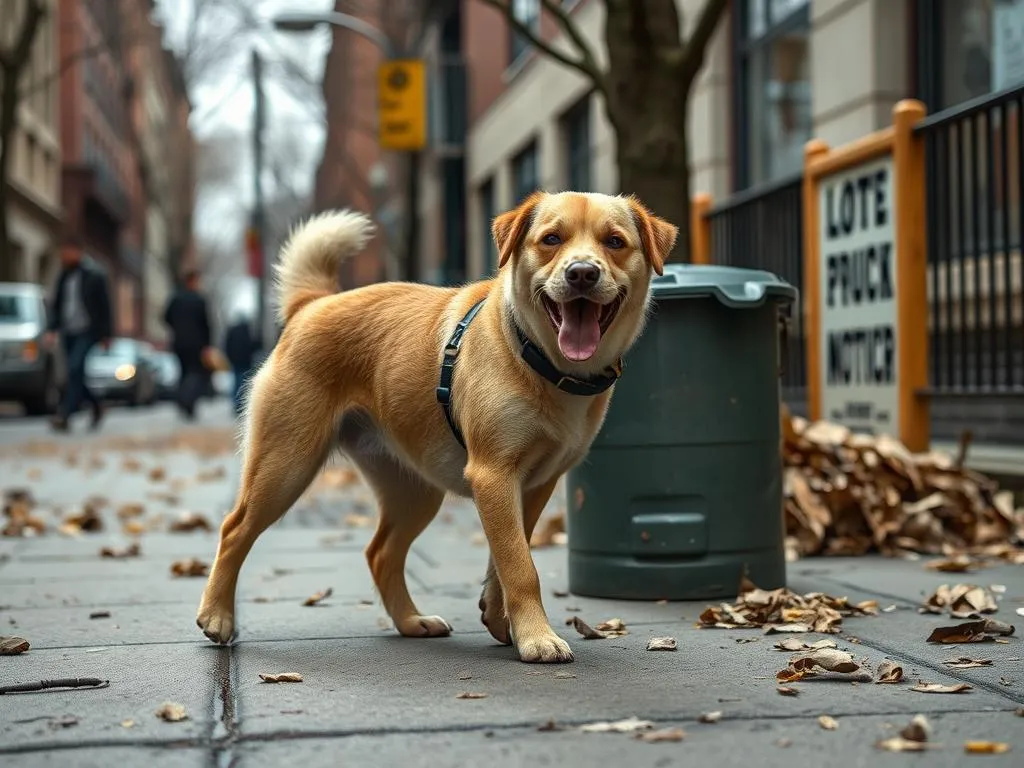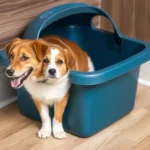
In the bustling streets of New York City, the essence of urban living is often accompanied by the responsibilities of pet ownership, particularly regarding our furry friends’ waste. New York dog poop law plays a crucial role in ensuring that the city remains clean and pleasant for all its residents. Responsible dog ownership is not just a matter of pride; it’s essential for the health of our communities and the environment.
Understanding Dog Waste Regulations in New York
Historical Context
The relationship between dog ownership and regulations in New York has evolved significantly over the years. Initially, dog ownership was mostly unregulated, leading to numerous public health concerns and community dissatisfaction. As the number of pet owners surged, the need for clear guidelines became apparent. The introduction of the New York dog poop law marked a turning point, emphasizing the importance of responsible pet ownership and the necessity of waste management.
Current Dog Poop Law in New York
The current New York dog poop law mandates that dog owners must clean up after their pets in public spaces. This regulation aims to maintain cleanliness and hygiene in neighborhoods, parks, sidewalks, and other public areas. Dog owners are required to carry waste disposal bags and properly dispose of dog waste immediately after their pet relieves itself. Failure to comply with these regulations can result in fines and penalties.
Specific areas where this law is strictly enforced include public parks, sidewalks, and residential neighborhoods. Signage indicating the requirements is often posted in these areas to remind pet owners of their responsibilities.
Penalties for Non-Compliance
Non-compliance with the New York dog poop law can lead to substantial penalties. The fines for failing to clean up after a dog can range from $250 to $500, depending on the severity of the offense and whether the owner is a repeat offender. Consistent violations can lead to legal action, including community service or the impoundment of the dog in extreme cases. The law serves to reinforce the importance of responsible pet ownership and the impact of neglecting this duty.
Importance of the Dog Poop Law
Health and Safety Concerns
The implications of ignoring the New York dog poop law extend beyond aesthetics. Dog waste can harbor various parasites, bacteria, and pathogens that pose significant health risks to both humans and other animals. Diseases such as roundworm, hookworm, and leptospirosis can be transmitted through contaminated soil or water, making it crucial for pet owners to adhere to waste disposal regulations.
Moreover, the public health implications of dog waste management are significant. Communities that fail to enforce these laws may see increased instances of disease outbreaks, resulting in higher healthcare costs and diminished quality of life for residents.
Environmental Impact
Dog waste is not just a nuisance; it has a profound impact on local ecosystems. When left untreated, dog waste can pollute water bodies, leading to algal blooms that deplete oxygen levels and harm aquatic life. Additionally, the nitrogen and phosphorus in dog waste can contribute to soil and water pollution, affecting local flora and fauna.
To mitigate these environmental impacts, it is essential for dog owners to utilize biodegradable waste bags and dispose of waste in designated trash bins. Doing so not only helps maintain the cleanliness of urban spaces but also protects the surrounding ecosystems.
Community Responsibility
The New York dog poop law emphasizes the collective responsibility of dog owners to maintain clean and safe environments for everyone. A clean neighborhood enhances the quality of life for all residents, making it a more enjoyable place to live, work, and play.
Furthermore, responsible pet ownership fosters a sense of community. By actively participating in dog waste management, pet owners contribute to neighborhood aesthetics, encourage social interactions, and promote a positive image of dog ownership.
Practical Tips for Dog Owners
Best Practices for Dog Waste Disposal
To comply with the New York dog poop law and contribute to a cleaner community, dog owners should adopt best practices for waste disposal:
- Use biodegradable bags: Choosing eco-friendly waste bags minimizes environmental damage.
- Always carry extra bags: Being prepared can prevent accidents and ensure you are ready to clean up right away.
- Dispose of waste properly: Use designated trash bins to dispose of dog waste. Never leave bags on the ground or in public areas.
Building Good Habits
Training dogs to relieve themselves in designated areas can significantly reduce the likelihood of accidents. Here are some tips to help build good habits:
- Establish a routine: Regular walks and consistent bathroom breaks can help dogs learn when and where to relieve themselves.
- Positive reinforcement: Reward your dog when they relieve themselves in the right spot to encourage this behavior.
- Educate neighbors: Share tips on responsible pet ownership with fellow dog owners to foster a community of compliance and care.
Resources for Dog Owners
Several local organizations and websites offer valuable information about responsible dog ownership and waste management practices. Engaging with these resources can provide dog owners with the knowledge they need to comply with the New York dog poop law effectively.
Community Perspectives on the Dog Poop Law
Dog Owners’ Opinions
Surveys conducted among local dog owners reveal a mixed bag of opinions regarding the New York dog poop law. While many support the regulations for maintaining cleanliness, some express concerns about the enforcement measures and the associated fines. Quotes from dog owners emphasize the need for education rather than punishment, highlighting the importance of community engagement in promoting responsible pet ownership.
Non-Dog Owners’ Perspectives
Residents without dogs often have a different viewpoint on dog waste management. Many express frustration over the mess left behind by irresponsible dog owners. The impact of dog waste spills over into their daily lives, affecting their enjoyment of public spaces. The New York dog poop law serves as a necessary framework to bridge the gap between dog owners and non-dog owners, ensuring that everyone can enjoy their community.
Local Government Initiatives
Local government initiatives aimed at educating the public about dog waste laws have gained traction in recent years. Programs include community clean-up events, workshops, and informational campaigns that emphasize the importance of the New York dog poop law. These initiatives encourage residents to take an active role in maintaining their neighborhoods and promote a culture of cleanliness.
Conclusion
The New York dog poop law serves as an essential guideline for responsible pet ownership, promoting public health, environmental protection, and community responsibility. By adhering to these regulations, dog owners can significantly enhance the quality of life for all city residents.
It is crucial for pet owners to understand the importance of cleaning up after their pets and to educate others about their responsibilities. By fostering a culture of compliance and care, we can ensure that New York remains a vibrant and welcoming place for all its inhabitants.









